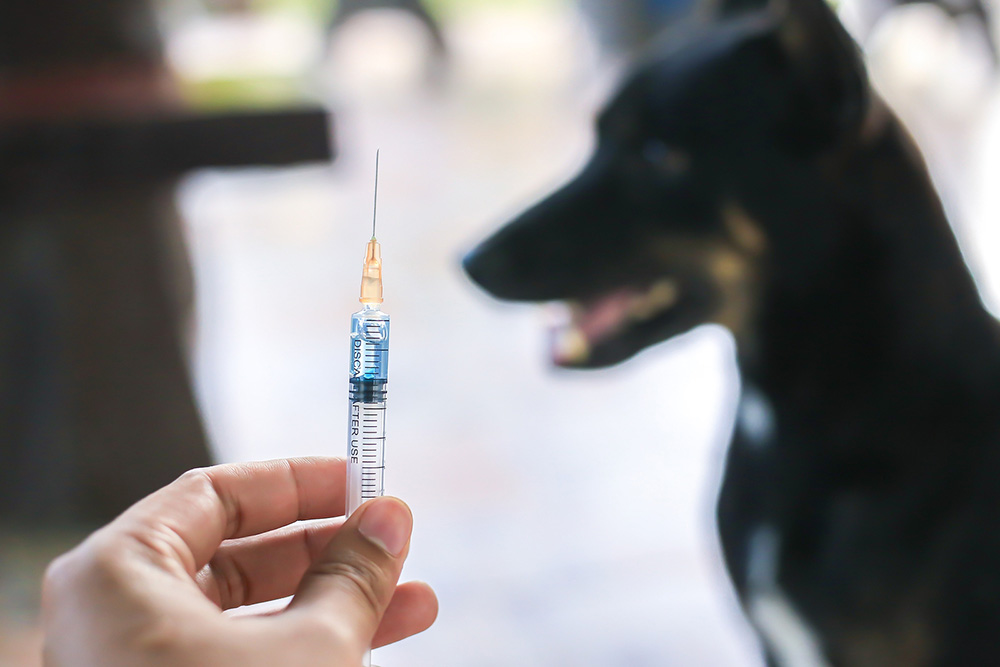Rabies Vaccination
The rabies vaccination is given out in three doses within 28 days, alternatively, this can be administered within 21 or 7 days if required quickly. Following 1 year, if travelling, a booster jab may be advised. Aim to have your first immunisation 5 weeks before travel to ensure good protection from rabies.
When to get vaccinated
Being a course of 3 doses, spaced at intervals, it is advised to ensure your first vaccination is 5 weeks in advance of your trip.
How it is given
The rabies vaccination is administered via injection into the deltoid.
Children
The vaccine is suitable from birth.
Risks if you contract rabies
Symptoms of rabies include numbness/tingling on the bite/scratch site, hallucinations, anxiety, energetic behaviour, paralysis, and difficulty with swallowing or breathing. Once symptoms start, rabies nearly always leads to death.
Course
Adults receive three doses, spaced either 28, 21, or 7 days apart. A booster immunisation is advised if one year has passed since vaccination and you are travelling to an at-risk destination.
Side effects
Short-term side effects may include a sore injection site, headache, high temperature, vomiting, or hives. Serious side effects are rare.
Additional precautions
As well as getting immunised it’s crucial to find out where urgent medical centres are on your trip and to clean any animal bites or scratches straight away, alongside seeking medical treatment. Stay away from wild or stray animals while travelling and don’t feed animals in zoos or sanctuaries. Always seek help if you think you have been bitten, scratched or licked by an animal that may have rabies.
Before the appointment
Check the vaccine ingredients for possible allergies and ensure you are free from a high fever at the time of your appointment.
What is Rabies?
Rabies is a viral disease that affects the central nervous system and is usually transmitted through the bite of an infected animal, including dogs, bats, raccoons, and foxes.
It is estimated that rabies causes 59,000 deaths each year, and when the virus infects the nervous system and symptoms begin, rabies is fatal in 100% of cases (source: World Health Organisation), making prevention crucial for travellers. Initial symptoms can include numbness or tingling on the wound, hallucinations, anxiety, energetic behaviour, paralysis, and difficulty with swallowing or breathing.
When travelling to regions with high rabies rates, the risk of exposure increases hugely. In these areas, street dogs and wildlife pose a danger which could lead to bites or scratches that can transmit the virus. Transmission can also occur from being licked by an animal on your eyes, nose, mouth, or an existing wound. Travellers should avoid contact with animals and ensure their rabies vaccination is up to date.
The UK is considered rabies-free due to strict animal importation and vaccination laws, especially for pets. The UK’s healthcare system also ensures a rapid response to any potential rabies exposure for swift treatment.
Approximately 95% of those who have the full rabies vaccination course will have some protection from rabies, and immunity can last for around 1-2 years (source: NHS). However, it is important to note that the vaccine does not completely stop everyone from contracting rabies; medical treatment should still be sought immediately if you think you have been exposed.
